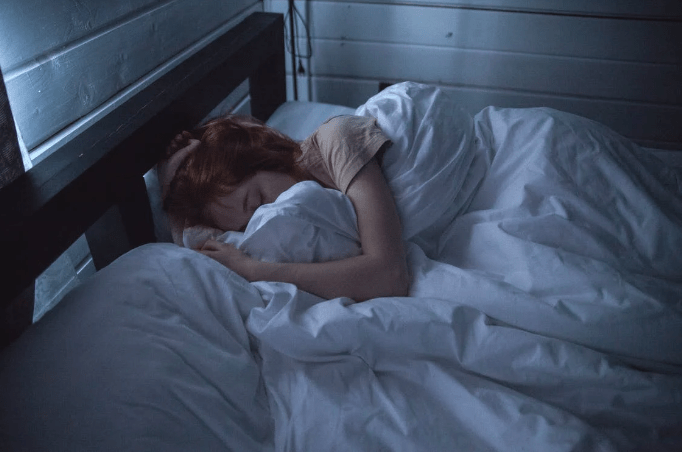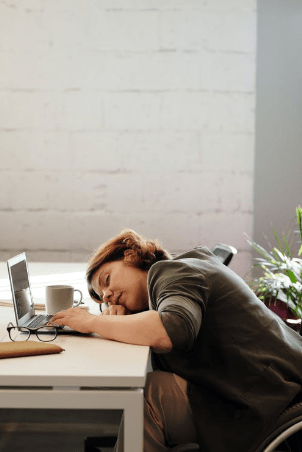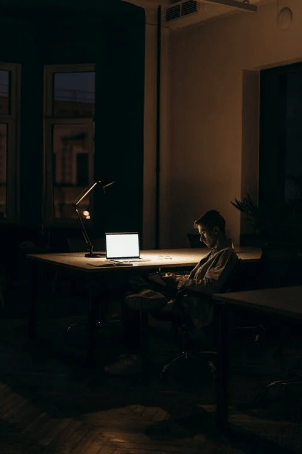“Early to bed, early to rise,” a phrase we all have heard at least once in our lives. Have you ever considered researching “Why” sleeping and waking up early is so important? Probably not. Today, it is normal for most of us to stay up late working, studying, or just watching movies. That’s maybe because, after a long day, we all need some time to do the left out chores or tasks, and the truth is most people don’t hesitate in sacrificing their sleeping time for all those extra tasks or hobbies. But is it really okay to do so?
Why is Sleeping Early Important?
Before we head towards the hazards of sleeping late, we need to know why it is important to sleep early. Either you are a kid, teenager, or adult, sleeping early is crucial for you, as there are several health benefits related to it.
1. Reduced risk of Developing Cancer
According to a study, it was revealed that people who stay up all night are more at the risk of developing cancer than those who sleep early. The body clocks of such people are interfered with, resulting in exposure to carcinogens. The average human body requires at least 7 to 8 hours of sleep daily. If someone sleeps early, it is possible to get enough sleep to avoid such health risks.
2. Energized Body
When someone doesn’t get enough sleep daily, he/she remains tired for the rest of the day. Sleeping early and getting enough sleep gives an energy boost to the body. Different processes occur in your body while sleeping, such as tissue repair, muscle growth, and hormone production, resulting in a fully recharged body.
3. Improved Skin
When a person is sleeping, his/her body goes into the healing phase. The body starts repairing itself at night. Sleeping properly will help avoid dark circles and eye bags, resulting in a fresh and young-looking face.
Other benefits of sleeping early include prevention from obesity, skin problems, stress, anxiety, heart disease, diabetes, etc.
How Much Sleep Does an Average Person Needs?
An average human needs around 7 to 8 hours of sleep to function perfectly. But of course, as every human is different, the need for sleeping hours might also vary. The thing that matters is, you need to know exactly how much sleep you need to be able to function properly.
Here’s the rule: if you usually wake up feeling exhausted, and are always looking for some time to get a nap, then youmost probably lack sleep. Several factors can be the reason behind the lack of sleep; for example, sleep apnea, for which a person needs to see a doctor as soon as possible.
What are The Disadvantages of Sleeping Late, And How Is It Bad for Health?
Sleeping late can cause several problems, including health issues. People who sleep late and do not get enough sleep experience fatigue, tiredness, lack of concentration, short temper, etc. If you sleep late just occasionally, it will not have any severe effects on your health. But, if this becomes a habit, it can become a threat to your health.
Continuously sleeping late will cause a lack of sleep, leading to difficulty in making decisions and concentrating. The lack of sleep can easily make you feel exhausted and affect your mood also. And with all this, the risk of injury at home, work, or the road also increases.
If you don’t take any precautionary measures about fixing your sleeping routine, this may also lead to severe health issues. Here are some health hazards, which are related to lack of sleep or bad sleeping habits.
High Blood Pressure
The blood pressure goes down or stays normal with proper sleep. But when there are sleeping issues or lack of sleep, the blood pressure is most likely to remain high. We all know that high blood pressure can lead to heart diseases, such as heart attacks and strokes.
Obesity
Sleeping late and lack of sleep can disturb the part of the brain responsible for controlling the appetite. This disturbance can result in unhealthy weight gain leading to obesity.
Diabetes
According to some studies, lack of sleep can disturb blood sugar levels. This disturbance can also turn into type 2 diabetes.
Stress and Anxiety
Our mental health is very closely related to our sleeping patterns. Sleeping late can have adverse effects on our mental health, resulting in stress, anxiety, and other mental disorders.
Is Sleeping Late Just a Bad Habit or Something More?
Most people sleep late because of work, chores, or just because it has become a habit. But, it is not always intentional; sometimes, people can’t fall asleep normally. Sleeping disorders are common, and they need to be treated. Some common sleeping disorders are:
Insomnia
Insomnia is the most common of all sleeping disorders. It is when a person finds it hard to sleep or stay asleep. The cause of insomnia can be some illness, stress, or any other thing that keeps your mind busy. The solution is to get rid of its cause; therefore, consulting a specialist is the best option if it stays the same.
Sleep Apnea
Sleep apnea is when someone loses his/her ability to breathe while sleeping. The cause of sleep apnea is the narrow or floppy throat. The trouble in breathing makes the patient wake up again and again.
Nightmares
Having nightmares is a common sleeping disorder. People wake up and stay disturbed because of the nightmares, resulting in lack of sleep and often insomnia.
These sleeping disorders are treatable, and anyone suffering from them must get treatment as soon as possible.
Conclusion
Sleep is necessary for every human being. It is the natural process of giving your body the rest it needs. When one tries to overwork their body, they should also stay ready to welcome health problems. Therefore, everyone must take care of their own charging hours, just like they care about their mobile phone’s charging.




